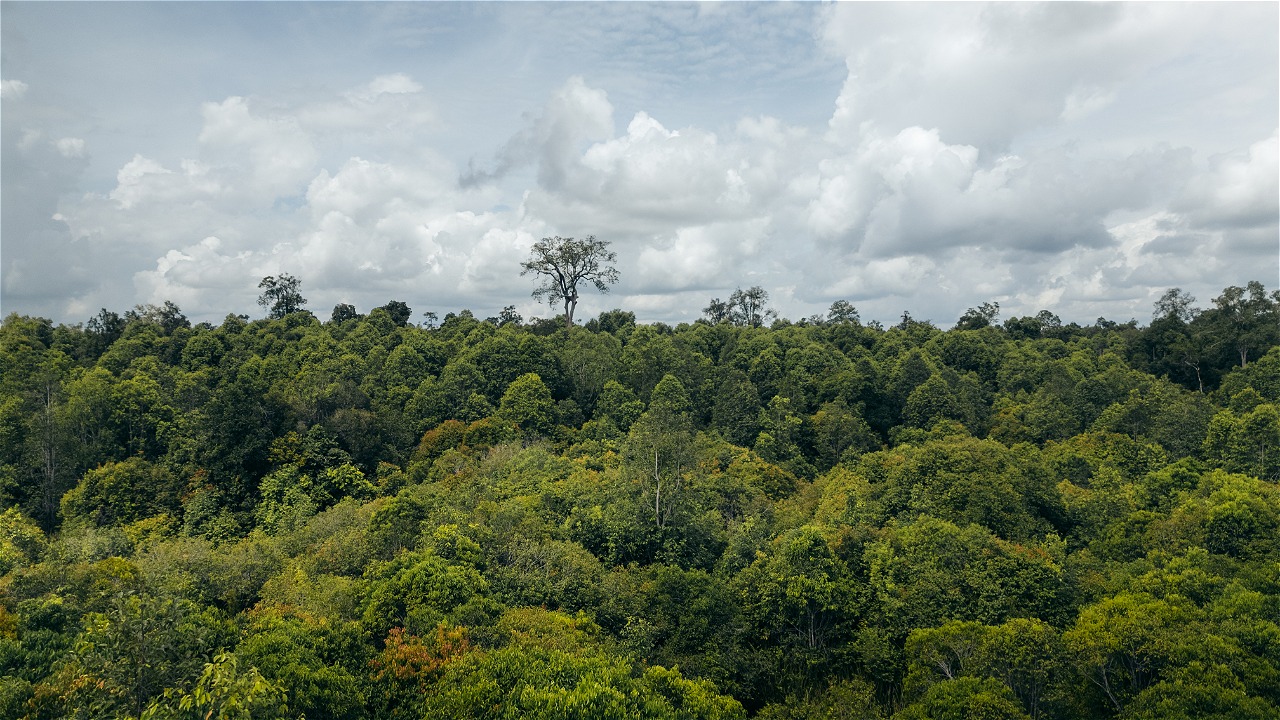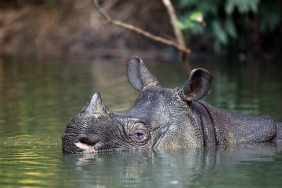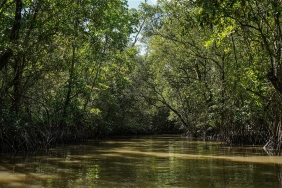DR CRISTINA EGHENTER - A 'DUAL' MISSION FOR A SUSTAINABLE FUTURE
Most of us would fill our lives by pursuing a mission, but for WWF-Indonesia's Deputy Director of Social Development, Dr. Cristina Eghenter, one mission is not enough!
Among many partnership agreements and activities in Indonesia and in the region, Cristina works with indigenous communities in the Heart of Borneo (HoB) Highlands to strengthen their role and visibility in sustainable development and conservation agendas. She supports activities that improve the well-being of communities and ensure the conservation of their natural and social culture in the HoB Highlands. Village development, sustainable development and conservation of natural assets - a difficult double act to pull off in any part of the world - is perhaps even more difficult in Borneo, with the never-ending threat of expansion of timber, oil palm and mining.
Cristina recognizes that this partnership agreement has been the most challenging but rewarding project of her more than 15 years working in conservation and community development in the HoB, particularly in East Kalimantan Province, Indonesia.
She likes to describe this project as a 'catalyst' project, an initiative that while small in scale and focused, can generate enough interest and support to create real long-term impact, especially economic and social benefits for the Indigenous Peoples of the HoB Highlands, who have pioneered alternative and sustainable measures for development in the Borneo region.
An anthropologist with considerable fieldwork and research experience in the interior of Borneo (while studying at Apau Kayan (Data Dian), he was given the indigenous Dayak name Awing), about 10 years ago, shortly after joining WWF, he visited the Krayan Plateau for the first time. The area has gently sloping mountains covered in dense forests, and wide valleys interwoven with rice paddies, gardens and fruit plantations that create a unique and comfortable landscape made by man and nature. The area is a very important water catchment area for Borneo Island. Several areas of megalithics and cemeteries bear witness to the long history of human presence in the region.
What makes the area special is that it is the homeland of the Lundayeh, Kelabit and Sa'ban people who have shared a strong and close culture, family ties and history, until today. This cultural Eco-land is administratively divided by an international boundary line between two sovereign nations, Indonesia and Malaysia.
In 2004, the Highland communities of Sarawak, Sabah (Malaysia) and Krayan (Indonesia) formalized the Formation of Indigenous Peoples (FORMADAT) of the Borneo Highlands, a cross-border community initiative to strengthen communication and understanding of the people of the Borneo Highlands, and promote sustainable development in their homeland. Since the inception of this initiative, Cristina offers WWF-Indonesia partnership and has helped facilitate support and capacity building for FORMADAT to preserve their cultural identity, build stronger awareness of their rights, and develop environmentally, socially and economically sustainable economic alternatives.
FORMADAT has initiated and supported economic development alternatives for the Highlands: community-based ecotourism and the promotion of premium products such as local organic rice, mountain salt, cinnamon and others, under the banner of Green & Fair Product (G&F), as well as WWF-Indonesia initiatives to strengthen fair and sustainable production, and market channels for local products.
Cristina recognizes that she is often reminded and asked by traditional chiefs in the Highlands to do more for the local economy. "Without economic benefits and impact on local livelihoods, conservation is a hollow movement," Cristina says. "Indigenous peoples and local communities are key partners in sustainable development," she continued. This is the challenge for conservation in the HoB, to be able to learn from local communities, work and partner with them to create a sustainable future.





